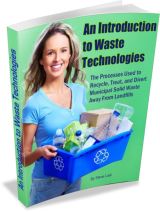Seasons Greetings to all that visit our website. We hope that you find this year's Christmas card below makes you smile.
We so much hope that you have enjoyed reading our articles through 2012. We are now in our seventh year of posting to this blog, and thank you for being subscribers and visitors.
If you want to know more about us you can visit our AD technical site here or check out our AD resources with free downloads for AD professionals.
If you are wondering whether to experiment with your own small biogas plant but don't know how (and want to get up and running producing your own biogas fast), we recommend the Firedigester eBook here.
Meanwhile, lets take stock of the year 2012. 2012 has been a fabulous year for the biogas industry globally!
When the figures for the year 2012 are finally in and the number crunched, we are sure that we will find that the year saw:
We so much hope that you have enjoyed reading our articles through 2012. We are now in our seventh year of posting to this blog, and thank you for being subscribers and visitors.
If you want to know more about us you can visit our AD technical site here or check out our AD resources with free downloads for AD professionals.
If you are wondering whether to experiment with your own small biogas plant but don't know how (and want to get up and running producing your own biogas fast), we recommend the Firedigester eBook here.
Meanwhile, lets take stock of the year 2012. 2012 has been a fabulous year for the biogas industry globally!
When the figures for the year 2012 are finally in and the number crunched, we are sure that we will find that the year saw:
- more biogas plants operating than ever before pumping more energy into the world's homes and businesses than in all history
- more new biogas plants completed than ever before
- more shovels put into the ground to start building new AD plant starts than before
- more publicity, more politicians wanting to be credited for supporting AD plants, and more government subsidies paid, than ever before!
Yes. It has been a remarkably good for the biogas and anaerobic digestion industry, and the technology looks like growing even more acceptance and willing investors, next year (2013). If the renewable energy output production from AD is going to meet the targets set by the rising number of governments which have undertaken to support this very sustainable and environmentally friendly technology, more growth like we have seen in 2012, in fact will be vital.












